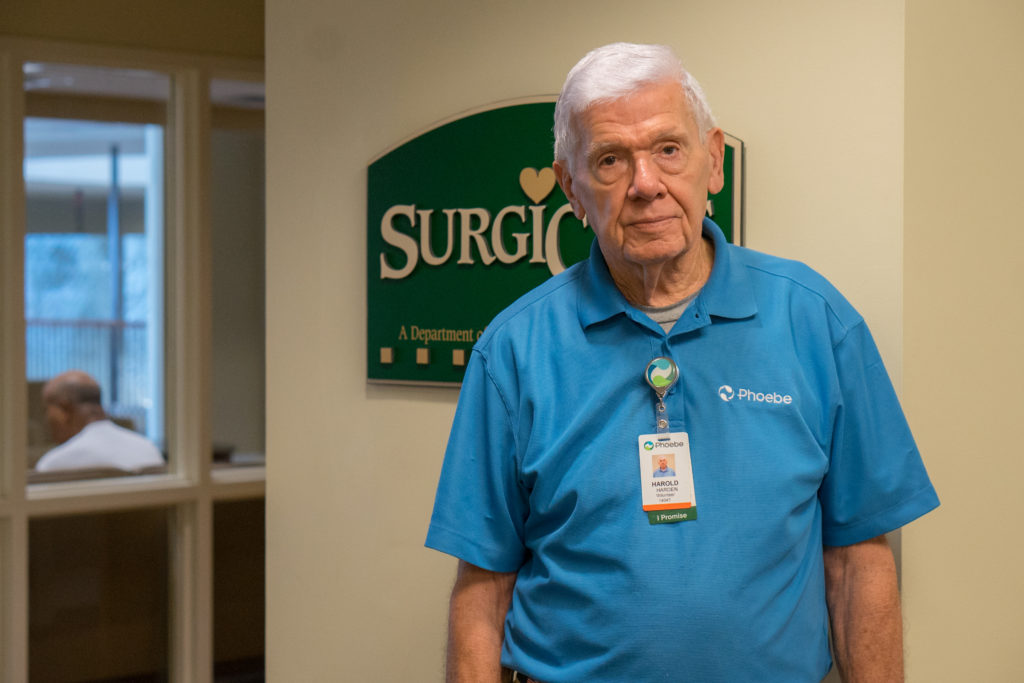
(Photo courtesy of Phoebe Putney Health System)
Press Release courtesy of Phoebe Putney Health System
Albany, Ga. – Phoebe hosted its annual volunteer appreciation banquet Thursday night at Sherwood Baptist Church to recognize the hundreds of dedicated southwest Georgians who generously donate their time and talents to support Phoebe’s mission. In the last fiscal year, 527 volunteers gave 52,545 hours of service at Phoebe locations in Albany and Sylvester.
“Our wonderful volunteers are so committed to our community and they have such compassion and concern for our patients. They perform vital services in clinical and non-clinical departments throughout Phoebe that help us operate more effectively and efficiently. Every day, our volunteers help us provide outstanding service to our patients, and we want them to know how important they are to Phoebe and how much we appreciate them,” said Suzanne Perrine, Director of Volunteer Services.
Longtime volunteer Harold Harden was named Phoebe Volunteer of the Year. He has volunteered more than 9,000 hours over 10 years. He volunteers Monday – Friday in Phoebe Surgicare and the Digestive Disease Center (DDC) where he arrives every morning even before the first staff member. Sixty-nine members of the Surgicare and DDC teams signed a letter nominating Harden for the honor.
They wrote, in part, “Mr. Harold is always cheerful and willing to perform any task asked of him. The services and support he provides are astonishing. His dedication and work ethic are impeccable. He is punctual and dependable. He actually considers the needs of the departments before planning his own vacations and time off. Mr. Harold improves our efficiencies. He pre-assembles various packets that are needed for patients. He ensures that the blanket warmer stays full and ready to provide that extra comfort for our patients. Also, under his watch, the nourishment area’s refrigerator is stocked and fresh coffee is always available for patients, visitors and staff.”
The Volunteer Services Department also honored retiring Phoebe CEO Joel Wernick. On behalf of the volunteers, Phoebe Putney Memorial Hospital Board of Directors Chairman Dr. John Culbreath presented Wernick with a commemorative pocket watch.
“Joel loves our volunteers and has been so supportive of them over the years. He appreciates the valuable time our volunteers dedicate to Phoebe, and he has given so much of himself and his time to Phoebe and to our community, we felt this timepiece was a small but appropriate token of our appreciation,” Culbreath said.
Wernick is retiring this year after 30 years at Phoebe’s top executive.
Anyone interested in volunteering at Phoebe can learn more about opportunities and can get a volunteer application by visiting www.phoebehealth.com/volunteers.
###
Follow the Southwest Georgia Network on Twitter @swganetwork.



